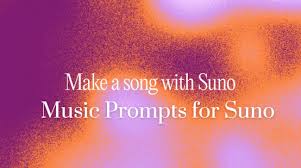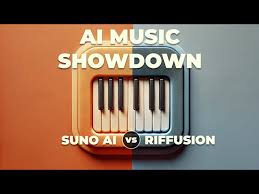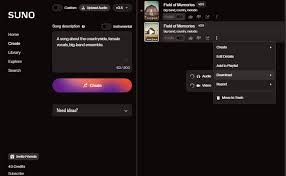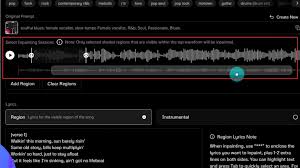Suno AI has made headlines with its advanced music-generation tools, capable of producing radio-ready tracks in seconds. But as the popularity of Suno grows, so do the questions surrounding its safety and trustworthiness. For users uploading personal content or even considering commercial use, the question arises: Is Suno AI safe?
In this article, we’ll take a closer look at Suno AI’s data handling policies, how it secures user input, the potential risks, and what real users are saying about the platform. Whether you’re a casual user or a creator planning to use Suno AI professionally, this guide will provide everything you need to make an informed decision.

What Is Suno AI?
Suno AI is an artificial intelligence music generator that allows users to create complete songs—including lyrics, melodies, vocals, and instrumentation—just by entering a simple prompt. It uses proprietary models trained on large datasets of music to simulate realistic musical compositions.
The platform currently offers a freemium model, with a Pro subscription plan that gives users more credits and commercial licensing rights. Suno AI integrates directly into web browsers and has a close connection with platforms like Discord and TikTok.
Why Are People Asking: "Is Suno AI Safe?"
Suno AI’s ability to generate music from user prompts means the platform processes a lot of data—some of which could be personal, artistic, or even commercially sensitive. Questions around safety mainly stem from:
Data privacy concerns: Does Suno AI store or reuse prompts or songs?
Intellectual property risks: Are user-generated songs truly owned by the user?
Cybersecurity practices: Is user data protected from breaches?
Ethical AI usage: Does Suno AI train on copyrighted music?
Understanding how Suno handles these concerns is essential to evaluating its safety.
How Does Suno AI Handle Your Data?
1. Data Storage and User Prompts
According to Suno AI’s privacy policy, user prompts and generated content may be stored to improve the AI models. While this is common in many AI platforms, it can raise red flags for users concerned about creative privacy.
Pros: Suno does not claim ownership over your input data.
Cons: Suno may retain the right to analyze prompts and generated music for training purposes unless otherwise stated in the Pro plan.
If you're using the free version, assume your data might be used to improve the service.
2. User Ownership of Generated Content
Suno’s terms of service state that users own the outputs they generate, particularly under the Pro plan. This is a strong indicator of transparency.
However, for free-tier users, usage is more restricted. The company may limit how you can commercialize or distribute the content.
Quick Tip: If you're serious about music production, upgrade to Suno Pro to secure full commercial rights and avoid any grey areas.
Security Protocols: Is Your Data Protected?
While Suno AI does not publicly disclose its full backend infrastructure, it states that user accounts, logins, and data transfers are encrypted using industry-standard protocols like HTTPS and token-based authentication.
Industry Comparison:
| Platform | HTTPS Encryption | Commercial Rights | Stores User Data? |
|---|---|---|---|
| Suno AI | Yes | Yes (Pro only) | Yes |
| Soundraw | Yes | Yes | Yes |
| AIVA | Yes | Yes | Limited |
| Mubert | Yes | Yes | Yes |
Ethical Considerations: Does Suno AI Train on Copyrighted Music?
This is a grey area for many AI music platforms, and Suno is no exception. While the company hasn't published a full list of training data, it claims to use legally obtained sources.
The platform avoids direct replication of existing works. Still, the risk of "style cloning" or unintended copyright similarity exists—a common issue in generative AI.
For creators planning to monetize Suno-made songs, this means:
Conduct due diligence before publishing.
Consider a human review step to ensure originality.
Use the Pro plan to protect your rights more effectively.
What Are Users Saying About Suno AI’s Safety?
Suno AI has received generally positive reviews for functionality, but mixed feedback regarding data transparency.
Real User Feedback (from Reddit, YouTube, and Discord):
“The quality is incredible, but I’d love more clarity on whether they reuse my prompts.”
“I’m using Pro and feel more secure, but the TOS could be clearer.”
“It’s fun for demos, but I wouldn’t use it for my main release without reading the fine print.”
This mixed sentiment highlights the importance of reading Suno’s terms carefully and understanding the scope of what’s allowed under your subscription.

FAQs: Is Suno AI Safe for Artists and Creators?
Can Suno AI use my song or lyrics for training its models?
Yes, unless you're using a commercial Pro account. Free users’ data might be used to improve the AI.
Is my personal information secure on Suno?
Your login data is encrypted. But like most web-based apps, risks still exist if you're not cautious with sharing.
Can I copyright a song created with Suno AI?
If you’re a Pro user, you can claim ownership and file for copyright in most jurisdictions. Free-tier users have limited rights.
Is Suno AI safe for minors?
Suno does not clearly state age restrictions, but due to data privacy concerns, it’s better suited for adults or supervised minors.
Final Verdict: Is Suno AI Safe?
Yes—with caution.
Suno AI is safe for general use and offers advanced security and ownership options—especially with a Pro plan. However, free-tier users should be aware that their prompts and generated music may be analyzed or used to train the model. For professionals or anyone creating serious content, upgrading is highly recommended.
As with any AI tool, read the fine print, monitor updates to the terms, and when in doubt—ask support directly.
Learn more about AI MUSIC








